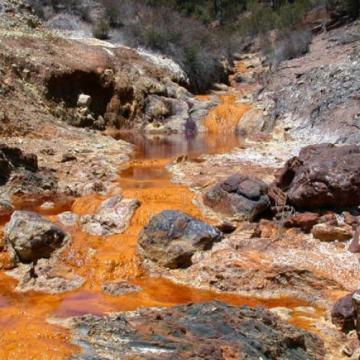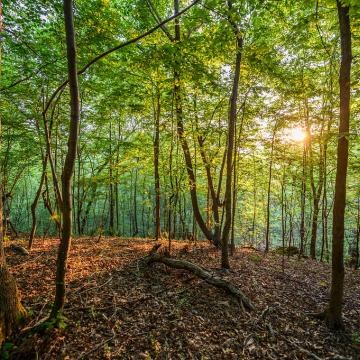-
NewsA Duke Forest tour featured research from the SEEDS Lab.
-
NewsSatellite records show spectacular vegetation growth coinciding with the first year of the pandemic. Researchers investigated whether lockdowns played a role.
-
NewsMeet the PlanetLab, learn more about its research focus, lab members' experiences in the lab and the opportunities the lab offers Duke students.
-
NewsDuke study reveals low levels of common contaminants but high levels of other elements in waters associated with an abandoned lithium mine.
-
NewsReforestation in low- and middle-income countries can remove up to 10 times more carbon dioxide from the atmosphere at lower cost than previously estimated, making it a potentially more effective option to fight climate change.
-
NewsAn international team of scientists has revealed high levels of toxic metals in global phosphate fertilizers using a variant of the element strontium to uncover such metals in soil, groundwater and possibly the food chain.
-
NewsExchangeable manganese cuts carbon storage in boreal forests
-
NewsMeet the Vengosh Lab, learn more about its research focus, PhD students' experience in the lab and the opportunities the lab offers Duke students.
-
NewsAs the world undergoes the great energy transition — from fossil fuels to alternative energy and batteries — rare earth metals are becoming more precious.
-
NewsA new Duke University study finds that municipal waste incinerators' legacy of contamination could live on in urban soils.
-
NewsMixing toxic coal ash into acid mine drainage may sound like an odd recipe for an environmental solution, but a new Duke University-led study finds that it can neutralize the drainage’s dangerously low pH and help reduce harmful impacts on downstream ecosystems—if you use the right type of ash. Using the wrong type of ash can create new contamination and not tame the drainage’s extreme acidity.
-
NewsThe sustainability of North American forests depends on trees’ ability to produce seeds and seedlings that can survive and grow in a changing climate. A new Duke University-led research initiative with more than $2 million in funding from the National Science Foundation aims to help boost their odds of success.
-
NewsA forest’s ability to regenerate after devastating wildfires, droughts or other disturbances depends largely on seed production. Findings from two new studies led by Duke University researchers could boost recovery and replanting after these disasters by providing foresters with new guidance on which tree species produce more seeds and how their productivity can vary from location to location.
-
NewsScientists, led by alumna Jacqueline Gerson PhD'21 and faculty member Emily Bernhardt, recorded the highest levels of atmospheric mercury pollution in the world in a pristine patch of the Peruvian Amazon
-
NewsMany North American tree species have begun to slowly migrate northward in response to global warming, but western and eastern forests are responding differently. A new Duke-led study reveals why.














